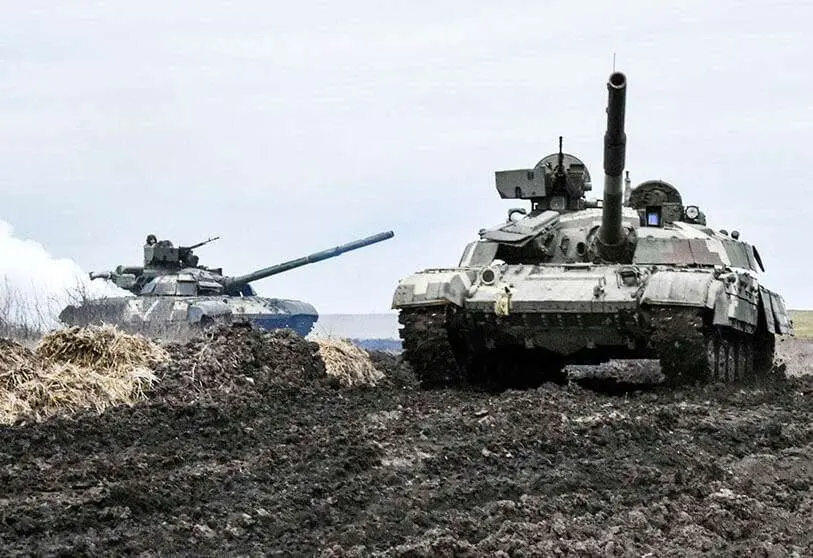Tension rises in Crimea after latest Ukrainian military manoeuvres on the border

The Crimea region, illegally annexed by Russia in 2014, is witnessing manoeuvres being conducted by the Ukrainian army in the surrounding territory. As reported by the Ukrainian Joint Forces command, the manoeuvres have consisted of preparation for combat conditions with tanks and artillery. "Tanks and artillery units subordinate to the Ukrainian Joint Forces Command are training in combat conditions," explained Sergei Nayev, a lieutenant general in the Ukrainian army.
The moves come just a day after Russian actions near the Ukrainian border were carried out, according to Moscow, in response to US and NATO "provocations". Russian Defence Minister Sergei Shoigu confirmed the recent exercises at a meeting with the Russian military leadership: "In three weeks, we have successfully moved two armies and three groupings of the Landing Forces to the western borders of our country, to the training areas". These actions come in response to what he says the country presided over by Joe Biden and NATO have done and may do, for which they say they remain vigilant and are prepared to act in accordance with the decisions that may be taken by Washington.

"If it worsens, we will, of course, do everything possible to ensure our own security and the security of our citizens, wherever they are". These are the words of Deputy Foreign Minister Sergei Riabkov. NATO, however, has distanced itself from Moscow's accusations and expressed its desire to restore stability in the border areas of Crimea. NATO Secretary General Jens Stoltenberg told a press conference that "Russia's significant military build-up is unjustified, inexplicable and very worrying. Russia must stop this build-up, stop the provocations and de-escalate immediately.
Stoltenberg also expressed his condolences for the death of one Ukrainian serviceman - two more were injured - following the incident that resulted from the ceasefire violation in the separatist regions in the east. Worryingly, this attack is nothing new as it has been preceded by several in recent days, causing alarm bells to ring in Kiev, as reported by the local Ukrinform news agency. This is one of the reasons why NATO is considering various strategies to increase its support for the Ukrainian country in the face of rising tensions in the region.

"NATO is on the side of Ukraine". This was made clear by the NATO Secretary General, who has been demonstrating this support for Kiev for some time. Recent joint exercises have been conducted, as well as an increased presence in the Baltic and Black Sea region. Not forgetting, of course, NATO's increased investment in defence policy. Jens Stoltenberg used the press conference to condemn, once again, Russia's illegal annexation of the territory of Crimea, as well as the recognition of Ukrainian sovereignty over the region.
Dmytro Kuleba, Ukraine's Foreign Minister, welcomed the NATO Secretary General's words and said that "Russia will not take anyone else by surprise", referring to the occupation of Crimea. He was also very critical of those who associated Ukraine as a Russian satellite, to which he responded very forcefully, saying that the country presided over by Vladimir Putin "must understand that Ukraine belongs to the democratic and Western world. And the West will not allow Russia to break Ukrainian sovereignty and democracy".

What is clear to both NATO and Kiev is that it is vital to avoid direct confrontation at all costs, something they do not envisage in any scenario. However, Russia's latest moves leave no room for complacency, and Kuleba says that "the measures we are talking about may seem to come at a high cost. But the price of prevention will always be lower than the price of war and mitigating its consequences. It is better to act now to prevent Russia from escalating the situation".








